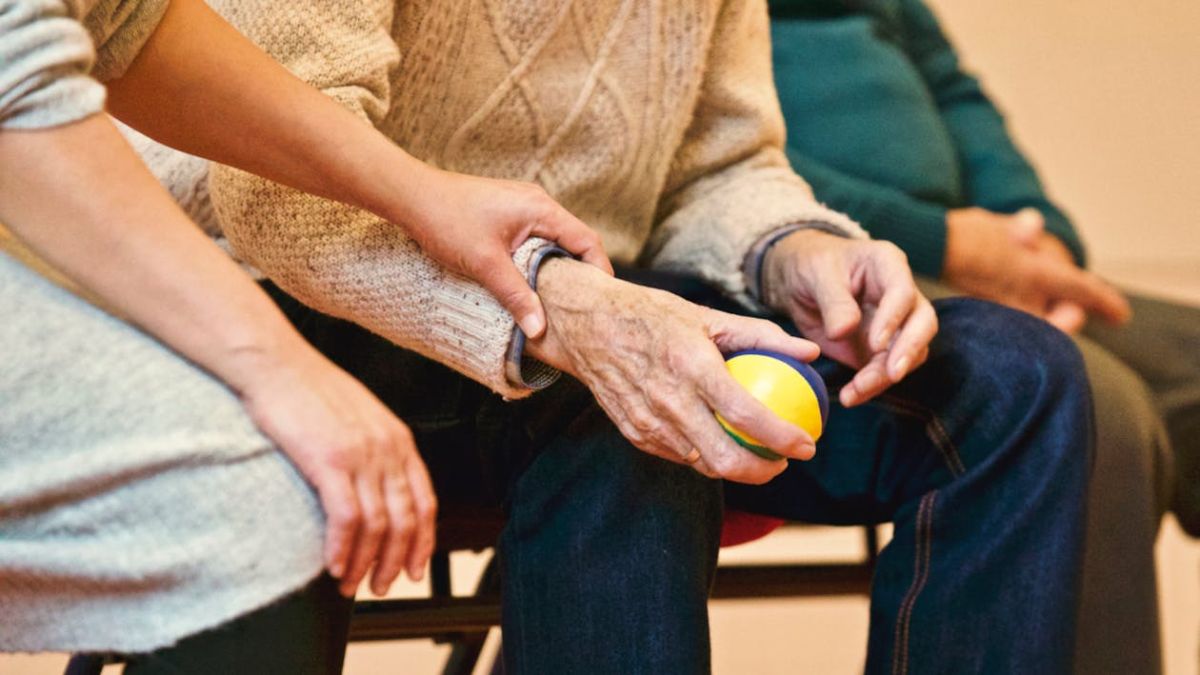When you care for others as a profession, it can be easy to neglect your own health and wellbeing. This is especially true when it comes to mental health. We get caught up in the needs of others and forget that we too, have needs. When this happens, it’s important to be able to recognize the signs within ourselves that may be signaling it’s time for a break. This is instrumental in avoiding burnout amongst caregivers. If you’re a caregiver often finding yourself low on energy, you may be burnt out. Read along as we discuss burnout specifically in relation to caregivers, how to identify its signs, and potential solutions.
Caregiver Burnout:
Caregiver burnout is a state of physical, emotional, and mental exhaustion. It may be accompanied by a change in attitude, from positive and caring to negative and unconcerned. Burnout can occur when caregivers don’t get the help they need, or if they try to do more than they are able, physically or financially. Many caregivers also feel guilty if they spend time on themselves rather than on their ill or elderly loved ones, which can add to the fatigue, stress, anxiety and depression experienced with caregiver burnout.
Other factors that can lead to caregiver burnout include:
- Role confusion: It can be difficult for people to separate their role as caregivers from their roles as spouses, children, friends or other close relationships. This can cause heightened senses of anxiety trying to fulfill each role in a meaningful way.
- Unrealistic expectations: Many caregivers expect their involvement to have a positive effect on the health and happiness of the patient. This may be unrealistic for those suffering from a progressive disease, such as Parkinson’s or Alzheimer’s.
- Lack of control: Caregivers may become frustrated if they lack the resources to effectively plan, manage, and organize their loved one’s care.
- Unreasonable demands: Some caregivers place unreasonable burdens upon themselves, in part because they see providing care as their exclusive responsibility. Some family members or patients may place unreasonable demands on the caregiver. They also may disregard their own responsibilities and place burdens on the person identified as primary caregiver.
Caregiver burnout can happen to any caregiver at any time. If you are already suffering from stress and depression, seek medical attention as these are serious, but treatable conditions.
Caregiver burnout signs:
In order to identify whether or not you’re burnt out as a caregiver, it’s important to understand the signs. The symptoms can be very similar to that of stress and depression, and should not be taken lightly. The symptoms of caregiver burnout include:
- Lack of energy
- Overwhelming fatigue
- Sleep problems (too much or too little)
- Changes in eating habits; weight loss or gain
- Feelings of hopelessness
- Withdrawing from, or losing interest in, activities you once enjoyed
- Neglecting your own physical and emotional needs
- Feeling like caregiving is controlling your life
- Becoming unusually impatient, irritable or argumentative with the person you’re caring for and/or with others
- Anxiety about the future
- Depressive moods and/or mood swings
- Difficulty coping with everyday things
- Headaches, stomachaches, and other physical problems
- Lowered resistance to illness
Protecting yourself:
Focusing on the people you care for can make it hard to realize that your own health and wellbeing are suffering. The emotional and physical demands involved with caregiving can strain even the most resilient person. That’s why it’s so important to take advantage of the many resources and tools available to help you provide care for your loved one. Remember, if you don’t take care of yourself, you will be less effective in your role caring for others!
To help manage caregiver stress:
- Accept help: Be prepared with a list of ways that others can help you, and let the helper choose what he or she would like to do. For instance, a friend may offer to take the person you care for on a walk a couple of times a week. Or a friend or family member may be able to run an errand, pick up your groceries or cook for you.
- Focus on what you are able to provide: It’s normal to feel guilty sometimes, but understand that no one is a “perfect” caregiver. Believe that you are doing the best you can and making the best decisions you can at any given time.
- Get connected: Find out about caregiving resources in your community. Many communities have classes specifically geared towards understanding the conditions that may be affecting the person or people you care for. Caregiving services such as transportation assistance, meal delivery, or housekeeping may be available.
- Seek social support: Make an effort to stay well-connected with family and friends who can offer nonjudgmental emotional support. Set aside time each week for connecting, even if it’s just a walk with a friend. A support group can also be a good place to create meaningful friendships, as they can provide validation and encouragement, as well as problem-solving strategies for difficult situations.
- Set personal health goals: For example, set goals to establish a good sleep routine, find time to be physically active on most days of the week, eat a healthy diet and drink plenty of water. Visit your doctor regularly and don’t hesitate to mention any concerns or symptoms you have.
Summing it up:
As a caregiver, it’s important to manage burnout by taking a break from caregiving responsibilities, asking for social and emotional support from friends and family members, and taking proper care of yourself. However, caregiver burnout can be difficult to recognize. You may not realize that you’re experiencing symptoms of caregiver burnout, or you may feel like they’re a normal part of the caregiving process.
If you notice any of the signs and symptoms discussed here, it’s important to seek help right away. Recognizing the signs of caregiver burnout and developing strategies to combat this type of caregiver stress can help caregivers continue to provide care and support for their loved one with less stress. There’s never a better time to start than now, contact True Care today for more caregiver assistance!
DISCLAIMER: THIS BLOG DOES NOT PROVIDE MEDICAL ADVICE
The information in this blog is for informational purposes only and is not intended to be a substitute for professional medical advice, diagnosis, or treatment. Always seek the advice of your physician or other qualified healthcare provider with any questions you may have regarding a medical condition or treatment and before undertaking a new health care regimen.





